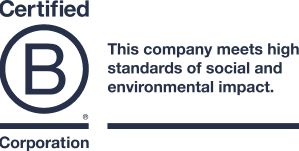This article is part of a series of super easy ways to reduce your single use plastic consumption while reaping a whole bunch of other benefits. Our philosophy on plastic is simple – reduce the use. Which is why we only sell completely plastic-free products like our luxury beach towel line. Together, we can make informed choices on avoiding unnecessary plastic use to help prevent it from ending up in the ocean.
P&G announced that Old Spice and Secret deodorant line are now available in plastic free packaging:
"The paper tube package, made of 90 percent recycled paper, is certified by the Forest Stewardship Council and features a “push up” design that would replace some of P&G’s plastic stick deodorant cannisters. P&G, which is completing the second phase of recyclability testing on the new package this fall, hopes to learn how consumers respond to the design. If successful, P&G will expand the new package across more of its line-up."
This is good news and we hope to see P&G announce more products moving to plastic-free packaging in the near future because the world produces over 300 million tons of plastic each year, half of which is for single use items. It's a harsh example of the problem with the boom of the throw-away culture as we prioritize ultra-convenience over well made, durable and reusable items.
Reducing plastic use is the most effective means of avoiding this waste. Relying on reusable water bottles and shopping bags is one eaasy way to avoid single-use plastics in our day-to-day lives; Choosing fabrics without plastic (ahem, like our plastic-free luxury beach towels) in them is another great way to reduce reliance on single use plastics.
The problem with plastics is they don't every really break down. Instead, the break up. Sunlight and heat create microplastics - defined as pieces of plastic less no more than 5 millimeters long. The are very hard to see and are sadly now just about everywhere. Microplastics eventually make their way into the ocean where they are mistaken for food by wildlife where they can cause an onslaught of health problems like punctured organs or fatal intestinal blockages.
The more we can avoid products in single use plastic in the products we buy, the less plastic ends up in the environment. Buying responsibly packaged products also signals to manufacturers that there is a market for such things and reinforces their interest in creating them.


